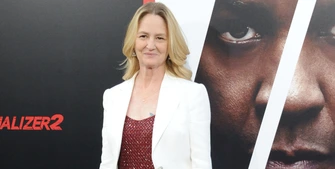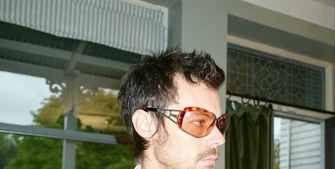'Impressions' helped Aimee Lou Wood to express herself
Actress Aimee Lou Wood says doing "impressions" growing up helped to express herself.

Aimee Lou Wood "learned to express [herself]" by "always doing impressions" growing up.
The 31-year-old actress said acting out different characters in her "little mini universe" helped her to talk to other people and make friends.
Aimee told the new issue of Radio Times magazine: "I was always doing impressions.
"I was very shy, but in private, I'd be talking to myself, and dressing up in wigs and creating my own little mini universe. It gave me calm.
"I didn't even know what my real voice was because I'd be constantly doing accents and different voices.
"I would sing my thoughts; I found it easier to express myself that way.
"All of a sudden, I could talk to people and find friends. It's how I learned to express myself."
Growing up, the White Lotus star felt a "deep need" to be "normal", but she realized it was OK to be different like the people she admired, including Jane Eyre - the fictional bildungsroman in the novel Jane Eyre by Charlotte Bronte.
Aimee explained: "Growing up, I felt a deep need to be 'normal', but then I realized all my favorite people, all the people I admired, were weird - even my favorite characters, like Jane Eyre.
"Acting has shifted how I feel about myself.
"I used to hate how my face was so expressive, but going into my 30s, I don't want to miss out on life because I'm worried about how I'm being perceived.
"Beauty is internal, and I'm my own human-shaped self, and that's OK.
"I don't need to fit into any box."
Earlier this year, Aimee revealed she was diagnosed with Attention Deficit Hyperactivity Disorder (ADHD) - a condition where people have trouble concentrating and sitting still - and is undergoing further tests to see if she is autistic.
Since the star - who made her debut writing project with the BBC sitcom Film Club, in which a young girl called Eve works out if she is autistic - was diagnosed with ADHD, she realized it is her "superpower".
Aimee said: "I don't need everyone to understand me. The people that get me, get me.
"The anxiety and feelings of inadequacy come from trying to meet other people's expectations, but what's so moving is that when I unmask, other people do too.
"The exhaustion and shame comes from covering things up, but it's freeing when you say, 'My brain doesn't work like that.'"















